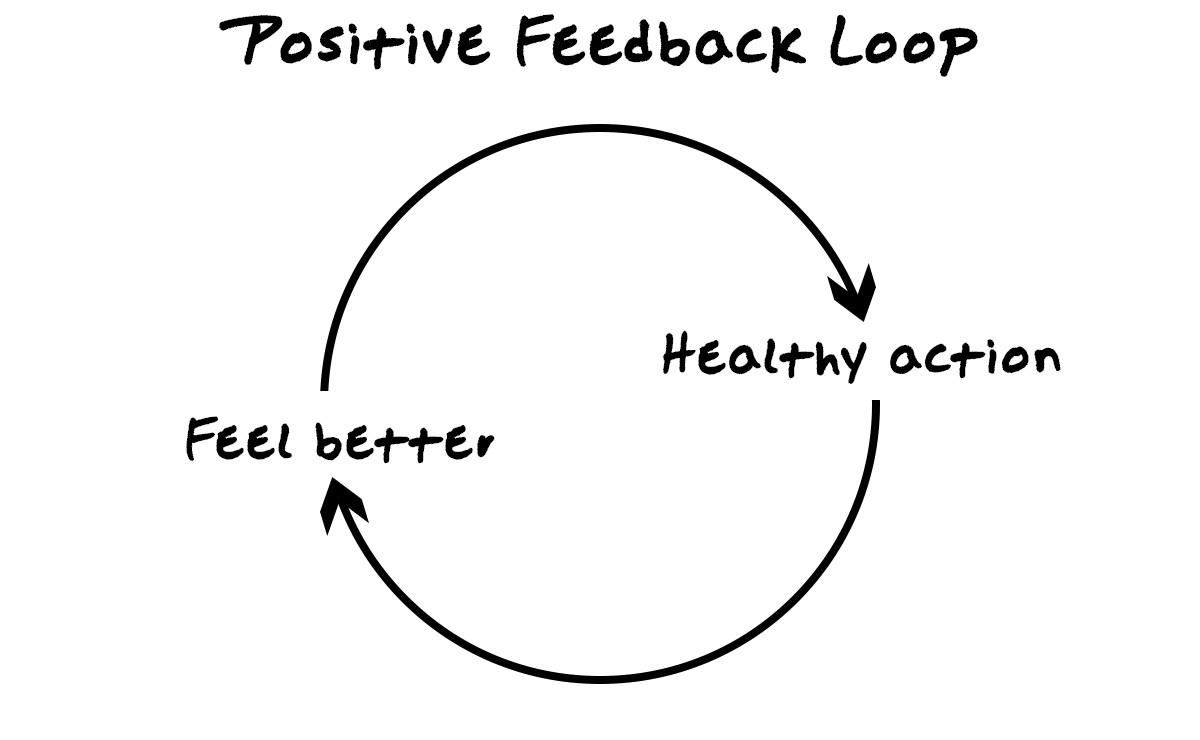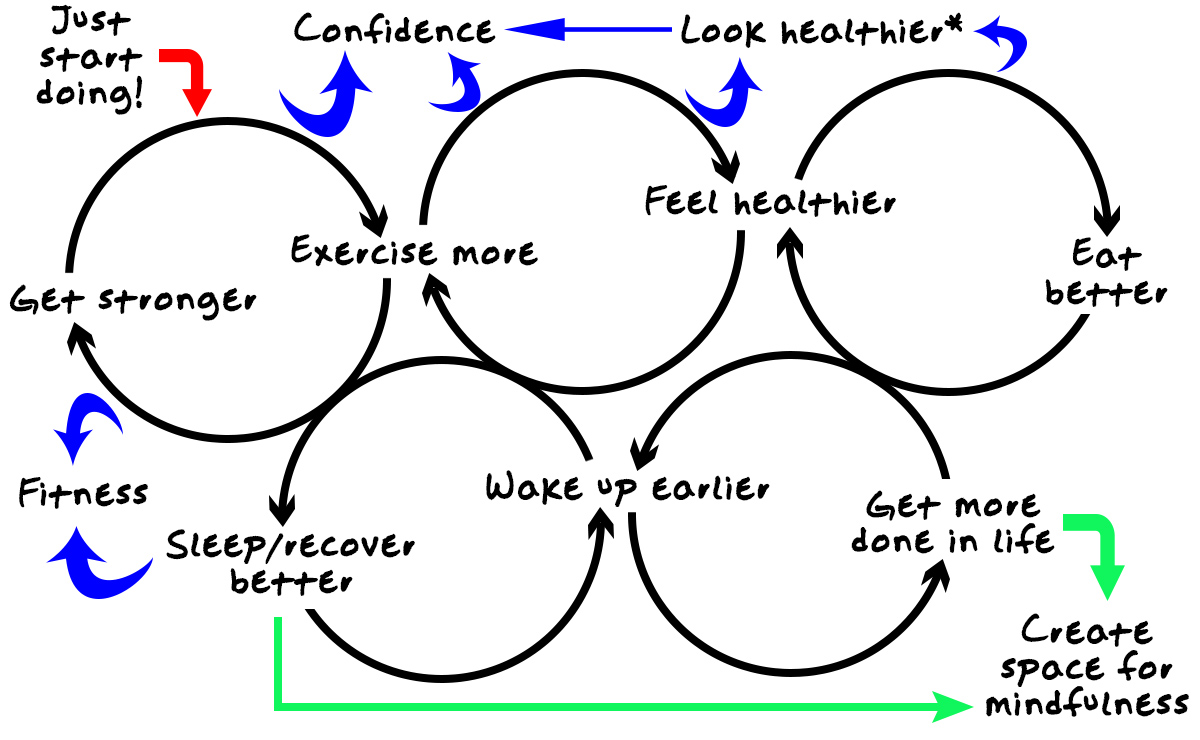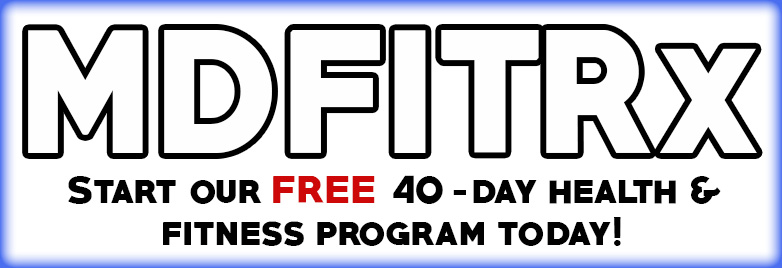Try to picture a hypothetical group of twenty “healthy” people. By healthy, I just mean that they are free from major diseases and that if we were to do extensive blood work, full body scans, colonoscopy, endoscopy, mammography, pulmonary function testing, and exercise stress testing that everything would come back normal. These people aren’t workout fanatics and just follow the typical American diet, but they’re free from disease at the present time. Let’s say that out of the twenty people, that half are women, and the ages of the group range from 30-50 years old.
If we gave these objectively healthy people a survey about the way they feel, what do you think the answers would show? Would all twenty feel great? Being healthy, they really should feel at least good most of the time right? Unfortunately, not really! After years of experience as a gastroenterologist, I have learned that many objectively healthy people feel pretty terrible most of the time!

If I had to guess how these 20 healthy people would answer the survey, it would be the following:
- 5 people feel “amazing” almost all of the time
- 6 people feel “pretty good” most of the time
- 8 people always feel fatigued, tired, sluggish, bloated, and have aches and pains that they can’t explain
- 1 person feels legitimately sick most of the time and fears that they have some horrible illness that has eluded all the testing so far
Again, these people are all objectively healthy on paper, and if we put them through every test that we have in modern medicine everything would come back completely normal. So why do almost half of these “healthy” people not feel healthy?
Being healthy and feeling healthy are actually two separate things.
While it is probably true that actually being healthy helps quite a bit with feeling healthy, it is definitely not a logical conclusion that the absence of disease will result in a person feeling well!
I think the absence of disease is just the baseline that most people need to feel well. We all know that when someone says they feel “great” they are not just saying “I don’t feel sick.” To feel great implies feeling alive, feeling vibrant and full of energy, feeling mentally clear and focused, and feeling physically quick and strong. In other words, feeling healthy!
Alright, get to the point already…how can I feel healthy right now?
OK, I get it…you want the secret formula to feeling healthier! You want the doctor’s shortcut to feeling alive and vibrant. You want to know what supplements to take and what superfoods to eat to feel great 110% of the time while still getting five hours of sleep and eating whatever looks good at the time. If you’re reading this and are healthy but don’t feel like it, you just want to know where to pay $49.99 per month and be guaranteed to feel awesome, right?
Unfortunately, as I am sure you are well-aware, it’s not as simple as just paying for some supplement or some membership to feel healthy! If you’re not lucky enough to just feel great out-of-the-box everyday, it’s going to take some work to get you feeling the way you want to! The good news: The work is fun if you open your mind to the possibility of taking control of yourself and doing things that are not necessarily “comfortable” right from the start…
Magical things happen when you start taking care of your body!
To really feel healthy, you have to attack your weaknesses on two fronts: You need to master your mind and your body. Since making any change is difficult, it’s best to just start with the easiest thing to change and work up to the harder parts. Starting small (but starting NOW) allows you to slowly build momentum by making small changes naturally over time. It is the best way to make a major change feel less painful, and is the same way you would eat an elephant…one bite at a time!
It’s much easier to start by working on your body than it is to try and rewire your mind. In fact, I would say that mastering your physical body is the first step to making long-lasting positive changes in your psychology, and actually makes that whole process much easier.

Like any small incremental change, positive habits can snowball naturally and grow into a huge lifestyle change without you even noticing! This is where the “magic” happens: Magic is when all the small automatic behavior changes that come naturally due to positive feedback become a new lifestyle that you actually enjoy! Sometimes this can take a few months, sometimes a few years, but if you do it right the changes you make can last a lifetime.
The plan
Here is how to start taking control of your physical body to unlock the positive feedback cycle of automatic healthy behaviors:
Step 1: Sleep
Sleep is absolutely fundamental for several reasons. You need sleep to function in general obviously. Feeling tired often comes from simple lack of sleep, or poor quality sleep because of stress, sleep apnea, acid reflux, caffeine or alcohol use, or because you have young children that can’t sleep through the night without you yet.
Either way, getting at least 7 hours or more of decent sleep is a prerequisite to feeling great. The best way to start? Get up at the same time every morning. Get up earlier and go to bed earlier. There really is no good reason that most people working the typical day job can’t get up at 5 AM and go to bed by 9:30 PM. You will somehow survive without watching TV until 11:30 at night. And keep your cellphone out of your bed to avoid the late-night social media scrolling!
Step 2: Food
It turns out that the medical and nutrition community has been all wrong about what we should eat and when we should eat it for at least the past 30 years or more! I was once a big proponent of eating small frequent meals throughout the day, the so-called “grazing” approach to eating. When I was younger, I also believed (or maybe just wanted to believe) that high-calorie processed junk food like fast food and fried food could be enjoyed in moderation as long as the total calories were accounted for.
Boy was I wrong! Eating well is not just about calories or weight loss…it’s thinking about what that food is slowly doing to your body in ways you cannot easily see. How does eating packaged processed food affect your coronary arteries, your gastrointestinal tract, your pancreas, your brain? How does eating junk food contribute to your cancer risk, or your risk of inflammatory and autoimmune diseases? How does it affect your gut bacteria? What is the insulin response to eating highly processed carbohydrates and how does this contribute to obesity, fatty liver disease, and diabetes?
There are a lot of questions to answer, and I hope to cover some of these topics in the near future. However for now let’s not overcomplicate things! It’s easy to eat healthy by doing just a few things:
- Stop snacking all day and just eat 2-3 real meals per day
- Eat when you are hungry and stop eating when you are full
- Cut out refined carbs (for example: white bread, cake, cookies, added sugar) and most processed prepackaged foods
- Avoid all liquid calories such as soda, juice, and sports drinks
- Eat mainly whole foods, and especially more fruits and vegetables
Step 3: Exercise
My feelings on exercise have already been covered here, but I can’t overstate the fact that human beings are made to move, not sit around all day. Walking is not enough…unless you are walking twenty miles per day or are starting from the baseline of not being able to get off the couch, walking is not really exercise. If you’re not sweating or at least thinking about quitting, it’s probably not exercise. Real exercise takes some effort and is temporarily a bit unpleasant. You shouldn’t be able to read a book or have a normal conversation if you are really working out.
Don’t shy away from pain! The temporary and controlled discomfort you get from working out is the key to a life of fulfillment and health! Don’t believe me? Exercise builds muscle and improves insulin sensitivity, the key factor in preventing diabetes, obesity, and metabolic syndrome. Hard work builds grit and a “can-do” attitude and is the antidote to having “low-energy.” Exercise clears the mind and allows you to get into that flow state of just doing and being present in the moment, which is different from the other 95% of your normal day when your head is swimming with anxiety, information, decisions, and noise. Much like meditation and other forms of psychological conditioning, regular hard exercise allows you to build psychological skills that you can begin to tap into during your every day life at home or at work.
Let’s not forget that for most people, the only real excuse for not exercising is simply laziness. (Note: I am not talking about the rare person with a medical condition who cannot safely or effectively exercise.) The majority of us can still do something that resembles exercise, even if it’s not a balls-to-the-wall workout session! Just because it is uncomfortable or hard doesn’t mean it isn’t good for you in a thousand ways. Don’t be lazy and then complain that you don’t feel awesome all day. There is no pill that can replace what exercise can do for your body and mind. Get moving!
Step 4: Maintenance
Listen to your body. Sometimes you need a day or two off from the grind. You may have a nagging pain or injury that needs attention. Pay attention to these things before they turn into a real injury that will derail your healthy lifestyle, albeit temporarily.
Also, make the time to get your routine medical checkups too. You may be a health guru who only eats tofu and works out for 3 hours per day, but when you turn 50 you still need a colonoscopy. Don’t neglect the basics: Get your blood sugar and cholesterol checked, get your preventive testing done, get your vaccines. Listen to your doctor once in a while!
Step 5: Create Synergy
If you are getting good sleep, eating well, not poisoning your body with excess alcohol, smoking, or drugs, working out regularly, and keeping up-to-date with routine health stuff, your body should be feeling pretty great. It takes a fair amount of work, but the payoff is immense and you can’t put a price tag on feeling healthy as you get older!
Getting started is the hardest part, but once the wheels are turning you will find yourself strangely enjoying the process and wanting to do it more. The magic happens when you create synergy, where one good habit supports another, creating a lifestyle that is greater than the sum of its individual parts!

*(“Look healthier” may mean losing weight, looking more toned and defined, or just simply looking more vibrant and alive!)
What about building a healthy mind?
As I wrote above, the body is easier to get into shape than the mind. Once you have control over what your body is doing, it’s time to start thinking about how you interact with the world. What happens in your own head controls how you see others and how you see yourself. Mastering your mind is the key to lifelong happiness. But of course, this is a topic for another time…
If you want more information about how to live a healthier life, make sure to visit my YouTube channel MDFITRx and follow me on Instagram for regular tips, info, and inspiration.

